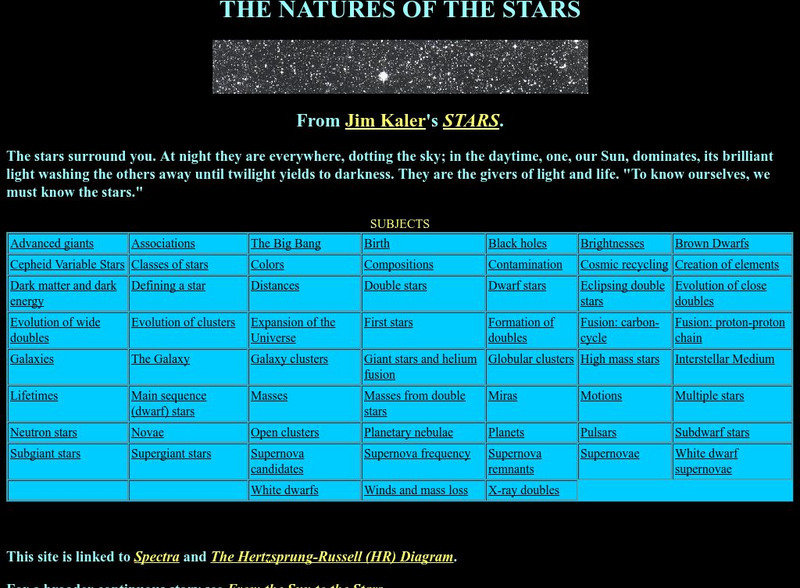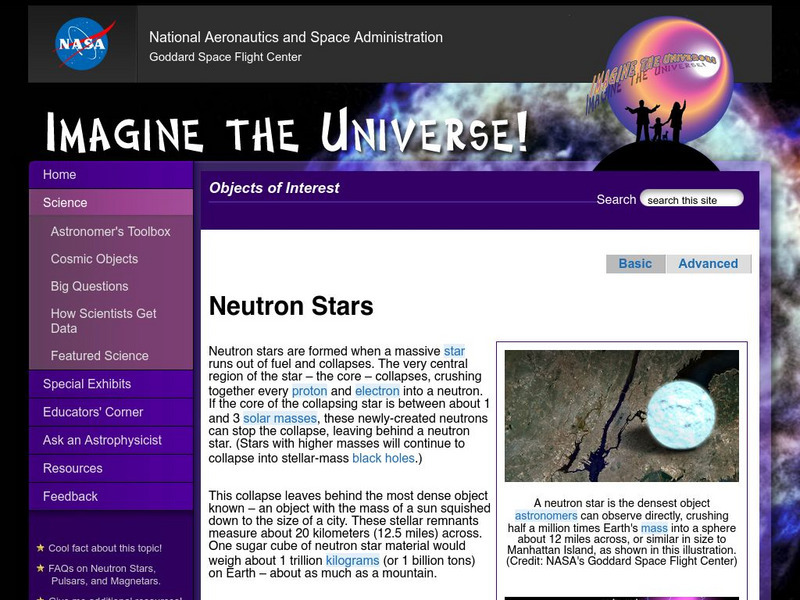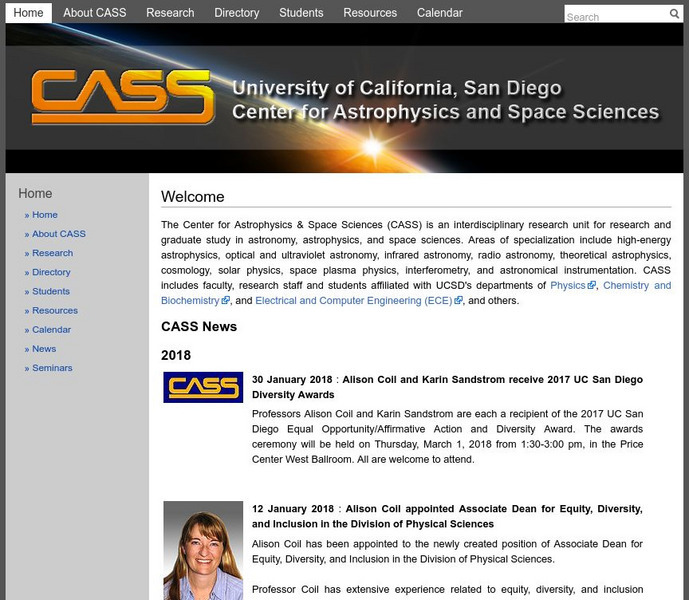Hi, what do you want to do?
Curated OER
Pulsars and Simple Equations
In this pulsars worksheet, students read about the spin rate of pulsars and they are given two equations that predict the spin rate in the future of these two pulsars. Students solve 6 problems related to the given equations and...
McGraw Hill
Neutron Stars Interactive
The universe is full of sources of energy. Explore the energy of pulsars with your classes through a simulation. An interactive lesson allows learners to manipulate the angle of rotation of both the earth and the pulsars. A real-time...
Curated OER
Pulsar Stars And Black Holes
Young scholars explore the discovery of pulsar stars, and the characteristics of pulsar stars. Theories and ideas behind black holes are discussed. The issues of women's historical role in science are also touched on.
Curated OER
Timing An X-ray Pulsar
Students use X-ray data to identify an object as a rotating neutron star, and determine its period of rotation. They use XTE observations of the Crab Pulsar to determine the period of the light intensity, interpret this period as the...
Curated OER
The Hand of Chandra!
In this nebula worksheet, students read about the Chandra X-ray Observatory that captured the given image of a pulsar and its nebula. Students solve 3 problems including using similar triangles and proportions to find the image width,...
Curated OER
Lifecycle of a Star
In this space science worksheet, students complete each statement with the correct word or phrase that related to the life-cycle of a star. Then they list the correct order of a stars life cycle. Students also define supernova and pulsar.
Curated OER
STRAINING FOR SOUND
Sixth graders use a laser along with computer microphone probeware and the appropriate software, 6th graders determine the speed of rotating objects.An audio amplifier is connected to a solar cell to change the laser light signal into a...
Curated OER
Star Search
Seventh graders explore stars. In this star lesson, 7th graders apply generalities about space objects to constellations and explore the differences between radio waves and light waves by answering essential questions in their research.
Glynn County School System
Lives and Deaths of Stars
Star light, star bright ... just how long can you wish on that star? Well, it depends on its mass. The presentation explains the life cycle of stars based on their sizes. Scholars learn about the life expectancy of a star based on the...
NASA
Taking a Cold, Clear Look at the Universe
Take a look with another perspective. Pupils read to find out what portion of the electromagnetic spectrum a space telescope sees and the difficulties of viewing infrared radiation from other objects in space. Individuals discover how...
Curated OER
Project Gamma
These slides give sets of facts and trivia about gamma rays. Your physicists will learn the dynamics of scattering photons and energy involved in gamma ray bursters. The concepts are quite involved making this PowerPoint a nice addition...
Curated OER
Black Holes Revealed
Students explore the concept of black holes through an interactive program. They explore how they form and what materials form them. They can also visit websites in which they can research radio transmission between the Earth and space.
Curated OER
The Many Faces of Energy
For this energy worksheet, students are given a table of the many measurements of energy. They solve 6 problems converting from one measurement of energy to another using the conversion factors given.
Curated OER
Selling the Stars
Students create a travel brochure, poster, and presentation to encourage others to visit a star. In this stellar characteristics lesson, students research a star type based on its life-cycle. They create a travel campaign to convince...
Curated OER
Radio Astronomy and Radio Telescope
Students construct a simple radio telescope. In this astronomy lesson, students explain how this telescope works and what information it collects.
Curated OER
Observing Bursts from an X-ray Burster
Students study the use of X-ray data to make size and energy estimates of the source and the processes occurring there. They use XTE observations of the object GRO 1744-28 to determine whether bursts occur periodically and the duration...
Other
Jodrell Bank Centre for Astrophysics: A Tutorial on Radio Pulsars
A extensive site that describes the history of the discovery of pulsars along with definitions, characteristics, locations, and distances of pulsars, plus much more.
PBS
Pbs Learning Media: Pulsars: Little Green Men
The story behind Jocelyn Bell's role in the discovery of pulsars is told in this colorful, comic-book-style resource from A Science Odyssey Web site.
NASA
Nasa: Heasarc: What Are Pulsars?
A detailed definition of a pulsar with an explanation of the relationship of pulsars to X-ray astronomy and links to related resources.
NASA
Nasa: Imagine the Universe: Pulsars
Resource explores what a pulsar is, as well as what is currently known about this phenomenon. Content includes a focus on x-ray observations of pulsars, and gamma-ray pulsars.
Harvard University
Chandra X Ray Observatory Center: X Ray Pulsar
X-ray pulsars are explained. Features a Java applet that simulates a pulsar and allows the viewer to control the rotational speed.
University of Illinois
University of Illinois: Stars and Constellations: Neutron Stars and Pulsars
This resource provides a brief description of the relationship between a neutron star and a pulsar. It details the pulsing rate and death of a pulsar.
NASA
Nasa: Imagine the Universe: Neutron Stars and Pulsars
Discover what neutron stars and pulsars are and view pictures of them. Includes links to additional resources and lesson plans.
University of California
University of California:center for Astrophysics & Space
Supernovae, neutron stars, and pulsars are topics on this page. Extensive section on pulsars that presents information on their discovery, characteristics, evolution, and location.


























